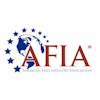
The U.S. and Brazil have agreed to revive for 90 days the expired tariff rate quota (TRQ) that allows some U.S. ethanol to flow to the South American country duty free, the two countries said in a joint statement Friday night.
According to a report at AgriPulse, this stopgap deal takes effect Monday and gives the two countries time to negotiate a more permanent deal and pushes the deadline for the politically sensitive issue past the U.S. presidential election in November.
The U.S. Grains Council, Growth Energy, the Renewable Fuels Association and the National Corn Growers Association issued a joint statement saying the 90-day extension of the TRQ serves neither Brazil’s consumers nor the Brazilian government’s own decarbonization goals, especially while Brazil’s ethanol producers continue to be afforded virtually tariff-free access to the U.S. market.
The extension falls during Brazil’s annual inter-harvest period when U.S. ethanol exports to Brazil are traditionally low, causing greater uncertainty for U.S. exporters looking to make selling decisions now for the traditionally higher Brazilian demand in the winter months.
"While the Brazilian ethanol market has not been fully reopened to imports, we appreciate the continued support and efforts of the U.S. government as we use this 90-day period to aggressively pursue an open and mutually beneficial ethanol trading relationship with Brazil," read the statement. "The U.S. ethanol industry actively sought, through repeated dialogue with local industry and government, to illustrate the negative impacts of tariffs on Brazilian consumers and the Brazilian government’s own decarbonization goals. However, it seems Brazil’s government has left its own consumers to pay the price through higher fuel costs once again.
"While we would have preferred Brazil abandon its ethanol import tariffs entirely and resume its free trade posture on ethanol, which it held for several years before the TRQ, we view its decision to temporarily extend the TRQ on ethanol at the current level as an opportunity to continue discussions toward that end," continues the statement.
"The U.S. ethanol industry remains focused on expanding the global use of low-carbon ethanol, reducing barriers to trade and elevating its prominence in energy discussions. We remain eager to collaborate and cooperate with other nations that share in the vision of a free and open global ethanol market."

















